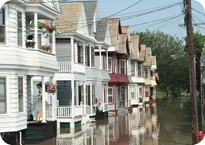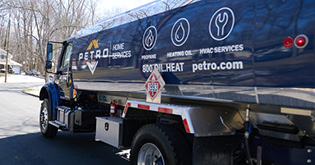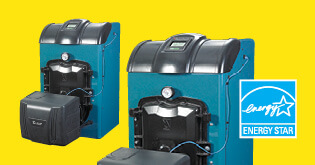- My Account:
- Sign In
- Register
- Make Payment

AHRI recommends homeowners replace flood damaged HVAC equipment.

The Air-Conditioning, Heating, and Refrigeration Institute (AHRI) is advising homeowners with flood damage to take important safety precautions with regard to their home's heating and cooling systems and to play it safe by replacing rather than repairing flood-damaged equipment.
You can turn misfortune into opportunity by considering new, energy-efficient models from Petro that will lower your future energy bills.
Click here for SPECIAL OFFERS on energy-efficient home heating and cooling systems
Attention New York State residents,
Governor Cuomo announces Household Appliances Grant Program for storm recovery. Learn more
The AHRI has compiled a list of heating and cooling equipment for homeowners to consider replacing if flood-damaged:
Gas furnaces and boilers.
If there is any question whether flood water has reached a gas furnace or boiler, AHRI advises it should be checked by a qualified contractor. This equipment has gas valves and controls that are especially vulnerable to water damage from floods - damage that might not be visible. Corrosion begins inside the valves and controls, and damage may not be apparent, even if the outside of the device is clean and dry. At a minimum, AHRI said, this damage can result in reliability problems.
Electric furnaces.
As with a gas furnace, an electric furnace is susceptible to corrosion and damage from flood water, creating potential reliability problems or safety hazards. AHRI said that, if there is any question whether flood water has reached an electric furnace, homeowners should have it checked by a contractor.
Propane heating.
AHRI said homeowners should use extreme caution where there is the potential for propane leaks and have propane equipment checked, repaired, and/or replaced by a contractor as quickly as possible after a flood. In every case, AHRI said, contractors must replace all valves and controls that have been in contact with flood water. The gas pressure regulator on a propane system should also be checked. This regulator contains a small vent hole to sense outside pressure. For effective gas pressure regulation, this hole must always remain unobstructed. During a flood, debris can easily plug the hole, causing dangerous malfunction or corrosion.
Radiant floor heat.
If the floor becomes wet from a flood, the system can weaken and perhaps crack and may need replacement. Both electrical cables and tubing can be damaged due to a wet floor. Therefore, a qualified professional should be consulted.
Heat pumps and air conditioning systems.
Split air-conditioning and heat pump systems have power and control wiring between the indoor and outdoor parts of the system, and piping through which refrigerant flows through the system. If flood water has repositioned either the indoor or outdoor units of a split system even by a small amount, there is a potential for refrigerant leaks. The system will then require major repair or full replacement. If the refrigerant system remains intact after the flood, the entire system should be cleaned, dried and disinfected. Homeowners should have a contractor check the indoor and outdoor units' electrical and refrigeration connections, including all control circuits. The decision to repair or replace should be made after consultation with a qualified professional on a case-by-case basis.
Ductwork.
If a house under storm repair contains a central forced-air system, attention should also be paid to the ductwork. A contractor will not try to salvage duct insulation that has been in contact with flood water, but will replace it because it is impossible to decontaminate. The contractor also will clean, dry, and disinfect the ductwork itself. A thorough job will require disassembling the ductwork, but the silver lining is that such repairs will allow the contractor to seal joints in the ductwork and improve insulation to reduce heat and cooling loss.
Water heating systems.
AHRI said that, whether a water heater uses gas, oil, or electricity, if it was exposed to flood water it should be replaced. A new water heater is a relatively small investment, and replacing it is fairly easy to do. If the water heater was more than five years old, the chances are good that a new unit will be more efficient, which will save the homeowner money in the long run. In a gas unit, valves and controls can corrode. In an electric unit, the thermostat and controls can corrode. In both types, the insulation surrounding the unit will likely be contaminated and will be nearly impossible to disinfect. In addition, the insulation takes a great deal of time to dry and can lead to corrosion of the tank from the outside. Even if water heater components have been cleaned and the unit seems to operate properly, parts may corrode in the future. Both gas and electric water heaters have a pressure relief valve that can corrode and stick after being exposed to flood water. Homeowners should be sure, therefore, to replace this valve as well.
Petro Home Services is proud to not only serve communities in DC, CT, MA, MD, NJ, NY, PA, and RI but we also proudly acknowledge the skills and experience of our expert team behind all resources. With insights on topics ranging from heating oil facts to common air conditioning questions, you can rely on Petro Home Services for facts and information to help you understand more about your heating, cooling and home comfort needs. This article and all articles on the Petro Home Services website have been approved by our team of home service experts.






